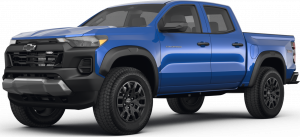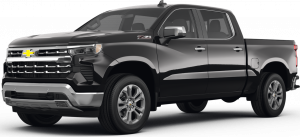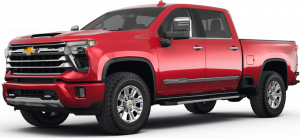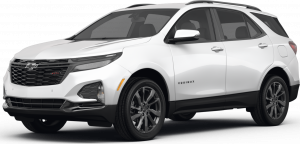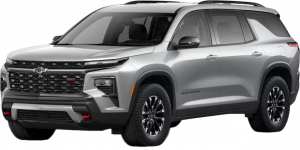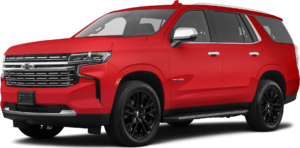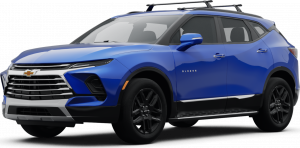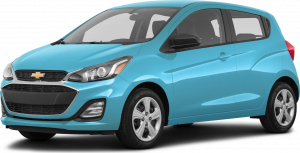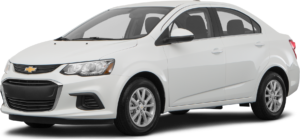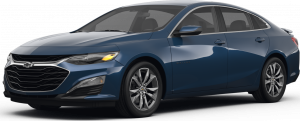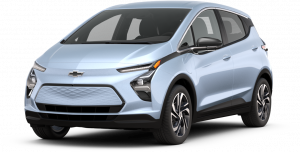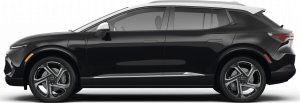EV Resources
Types of Electric Vehicles
Electric cars come in three main types with differing power systems designed to meet varying driving needs. They are: fuel cell, battery-electric, plug-in hybrid electric cars.
Battery-Electric
Battery-electric cars are all electric and don’t use gasoline, and instead have a large battery that powers one or more electric motors.
Charging a battery-electric car can be done at home using standard 120-volt or 240-volt house plugs, or away from home at public or workplace charging stations. They have a driving range of 80 to more than 300 miles, and have the capability to use DC fast chargers
Plug-In Hybrid Electric
Plug-in hybrid electric cars offer both gas-only and electric-only driving. With smaller batteries than battery electrics, plug-in hybrids have an electric-only range of 20-55 miles, during which they produce no tailpipe emissions. When the car uses up its electric range, it switches to gas and drives just like a conventional car.
Fuel Cell Electric
A fuel cell electric car runs on electricity, but does so differently than battery-electric cars or plug-in hybrids. Its power system is composed of numerous cells combined into a stack that chemically combine hydrogen gas from the car’s tank, and oxygen from the air to produce electricity. They have a driving range of 300-400 miles on a single tank and can be refueled in about five minutes at hydrogen fueling stations
EV CHARGING LEVELS
There are different levels to charge your vehicle Level 1, Level 2, Level 3 DC Fast Charging and Tesla Supercharging, which only charges a Tesla vehicle. All electric cars can charge on Level 1 and Level 2 options. However, some vehicles cannot charge at a Level 3 charger.
The EV controls the speed of the charging and once charging begins and the battery warms up. EVs typically draw the maximum flow of kilowatts available from the charger in which the EV's battery is designed to handle. The charger will hold this rate for as long as possible, though it may drop to a more moderate speed if the vehicle tells the charger to slow down so as not to compromise battery life. Once an EV’s battery reaches a certain level of capacity, usually 80%, charging slows significantly.
Level 1/Home Charging
Level 1 charging is simply plugging into a standard wall outlet. This is the slowest form of charging, as it uses only a 120-volt charge. It will typically charge your car at a rate of 2-5 miles per hour. This is most convenient for home charging as filling up your battery will take many hours.
Level 2 Charging
Level 2 charging delivers a charge of either 220 or 240 volts with a rate of up to 25 miles per hour. Level 2 chargers can be found at retail, residential, work, EVgo stations or you can have one installed in your home. The Level 2 can deliver a full charge throughout the course of the workday or overnight. However, if you don’t have time you can receive a minimal re-charge within an hour.
Level 3 Fast Charging
DC Fast charging is the most convenient way to charge for those electric vehicles with fast charging capability. It can charge your EV up to 80% capacity in under 30 minutes. Some of the new high-powered chargers, and newer EV models can charge 90-120 miles in 20-30 minutes.
Save Time in the Fast Lane with the Car Pool Sticker Program
The California Department of Motor Vehicles (DMV) issues Clean Air Vehicle (CAV) decals that allow single-occupant use of carpool lanes for vehicles meeting specified emissions standards.
or more information, including to check if you’re eligible, visit https://ww2.arb.ca.gov/our-work/programs/carpool-stickers
The Clean Vehicle Assistance Program
With the goal of helping make clean vehicles accessible and affordable, this program provides grants and affordable financing to help income-qualified Californians who purchase or lease a new or used hybrid or electric vehicle.
For more information, including to check if you’re eligible, visit https://cleanvehiclegrants.org/
Other State and Federal Assistance Programs
Clean Vehicle Rebate Project
California residents get up to $7,000 for the purchase or lease of a new, eligible zero-emission or plug-in hybrid light-duty vehicle.
For more information, including to check if you’re eligible, visit https://cleanvehiclerebate.org/eng
Fuel Cell Motor Vehicle Tax Credit
A tax credit of up to $8,000 is available for the purchase of qualified light-duty fuel cell vehicles, depending on the vehicle's fuel economy. Tax credits are also available for medium- and heavy-duty fuel cell vehicles; credit amounts are based on vehicle weight.
For more information, including to check if you’re eligible, visit https://afdc.energy.gov/laws/350.
Consumer Assistance Program: Vehicle Retirement
Offers eligible consumers an incentive to retire their operational vehicle. Consumers meeting the income eligibility requirement may receive $1,500 for each vehicle retired. All other vehicle owners may receive $1,000 to retire their vehicle at a BAR-contracted dismantler
For more information, including to check if you’re eligible, visit https://www.bar.ca.gov/consumer/consumer_assistance_program/cap_vehicle_retirement_program.aspx.
SoCal Edison Special EV Rate: SCE TOU-D-PRIME
Southern California Edison (SCE) offers a special rate to customers for electricity used to charge PEVs called TOU-D-PRIME. If you charge your EV at home when rates are lowest, between 8 a.m. and 4 p.m., it’s roughly equivalent to a gas-powered driver paying less than $2 for a gallon of gasoline. This Time-Of-Use (TOU) rate plan has the same periods as our TOU-D-4-9PM rate plan option but offers the lowest off-peak rates of all TOU rate plans to optimize savings while charging your vehicle.
For more information, including to check if you’re eligible, visit https://www.sce.com/residential/rates/electric-vehicle-plans.
Farmers Insurance Alternative Fuel Vehicle Discount
Owners who drive hybrids and other alternative fuel vehicles may save 5% on all major coverages.
For more information, including to check if you’re eligible, visit https://www.farmers.com/faq/discounts/.


